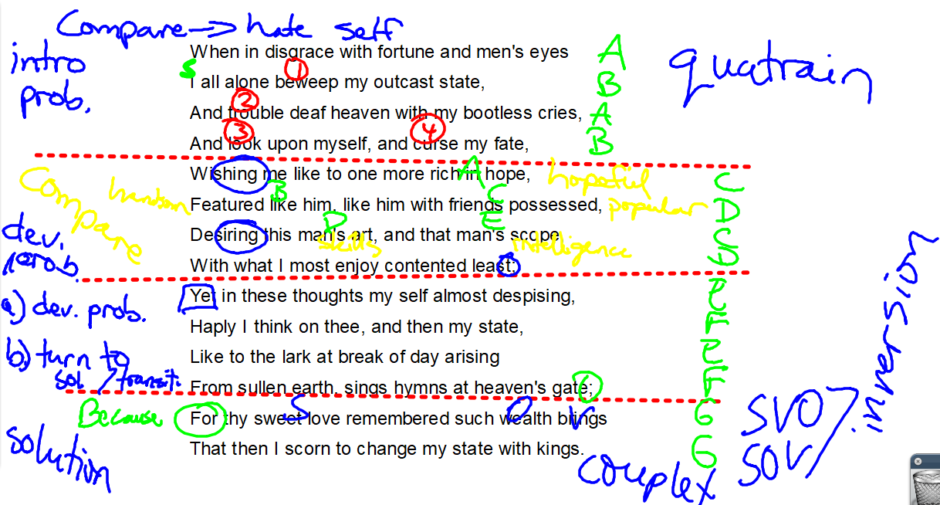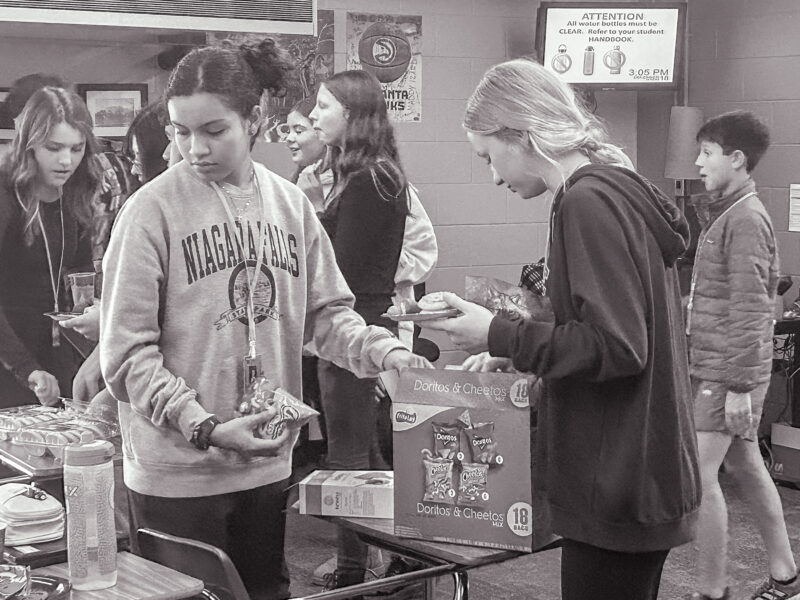

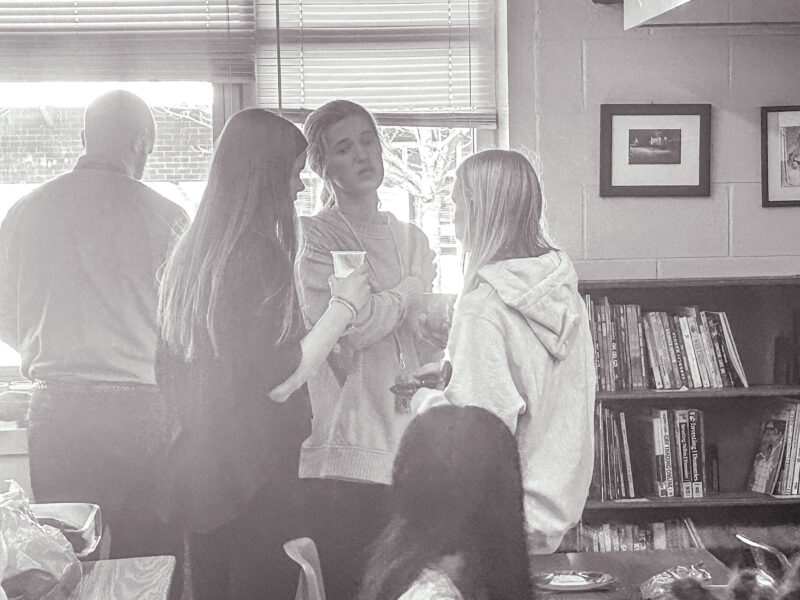
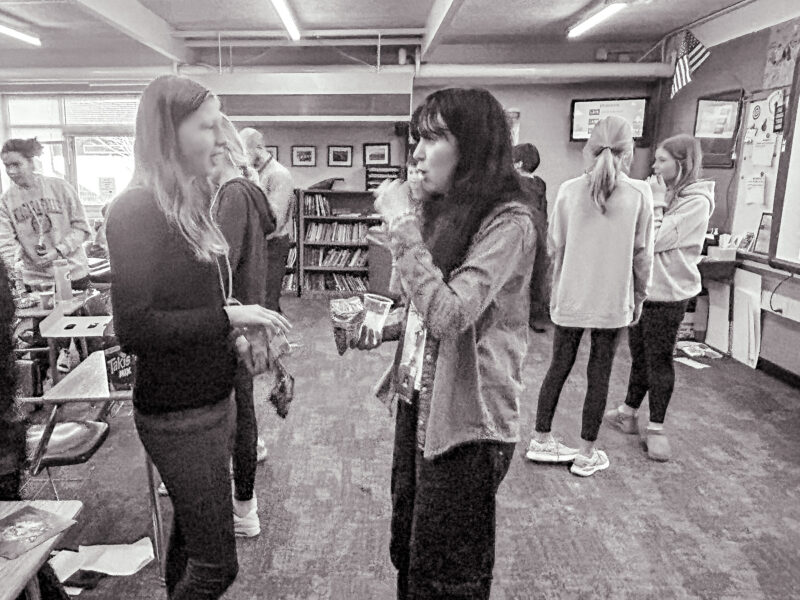
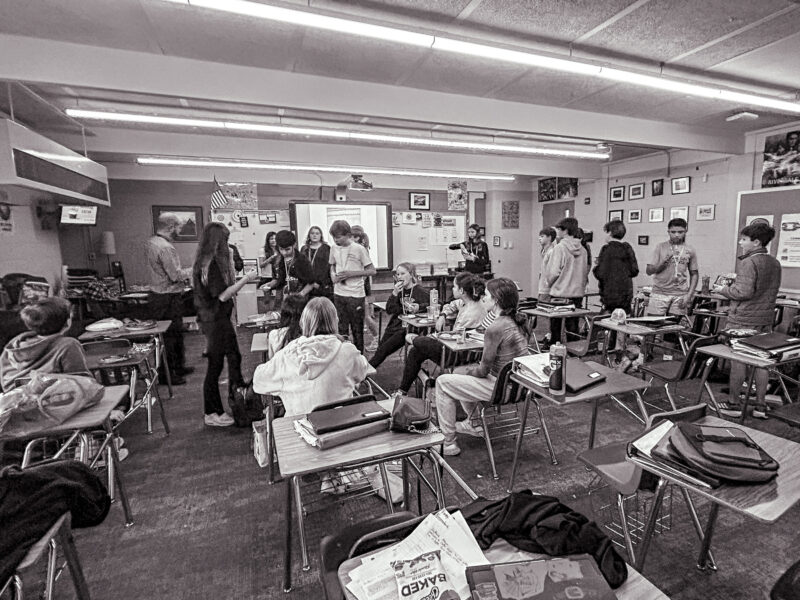
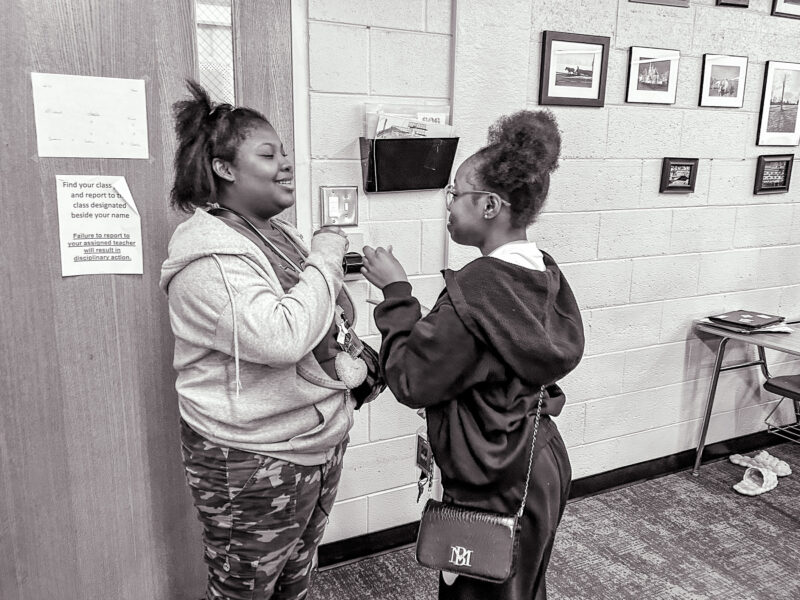
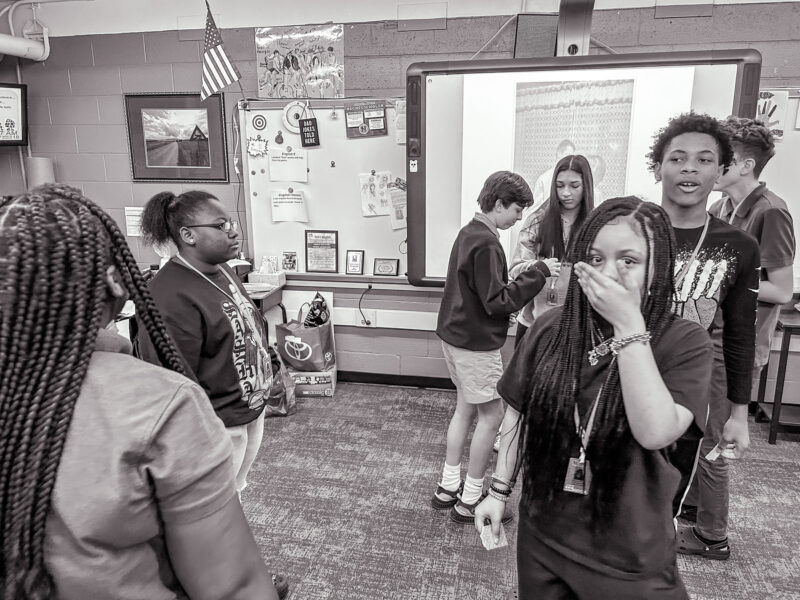
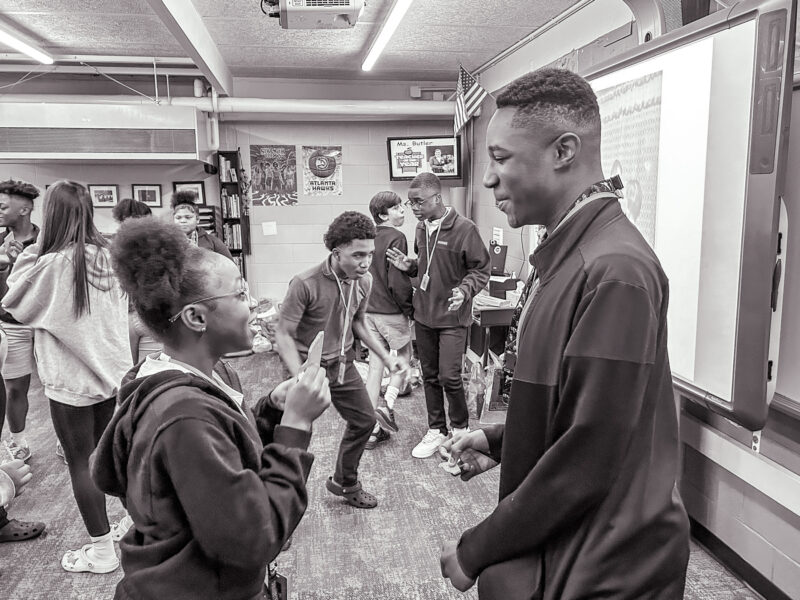
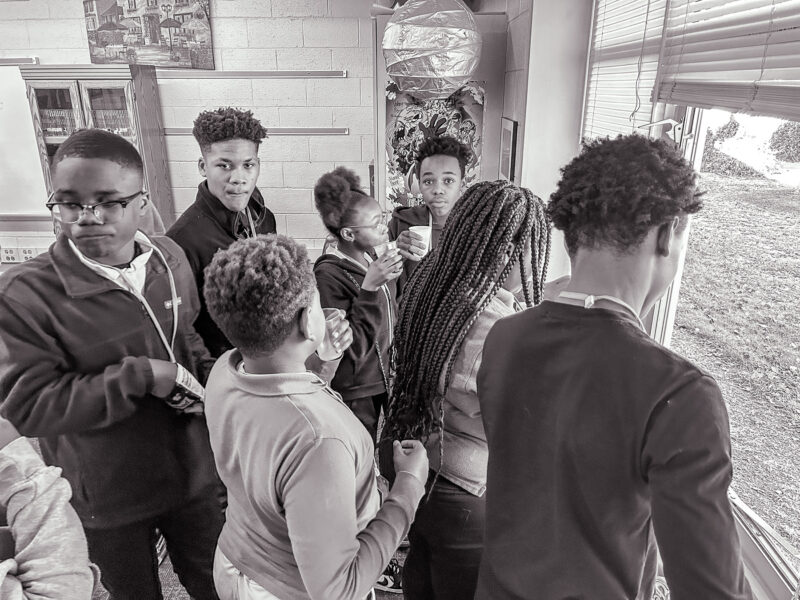
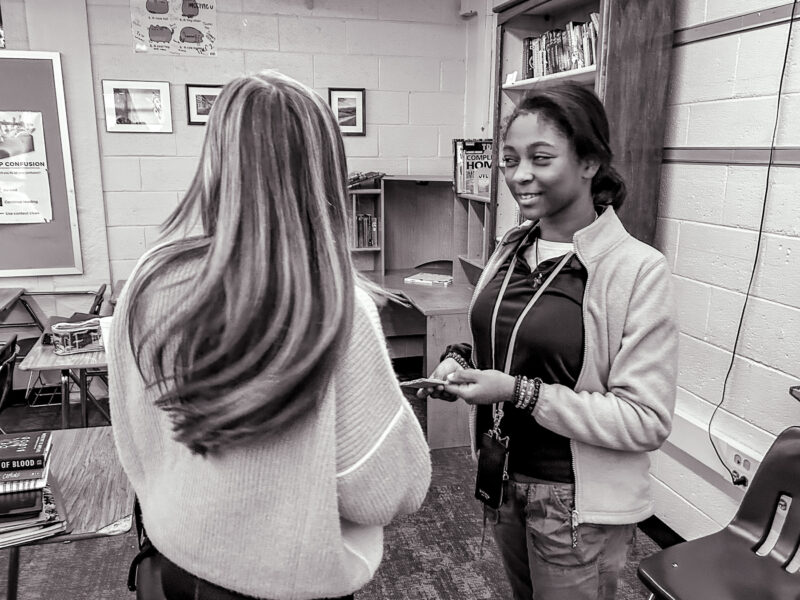
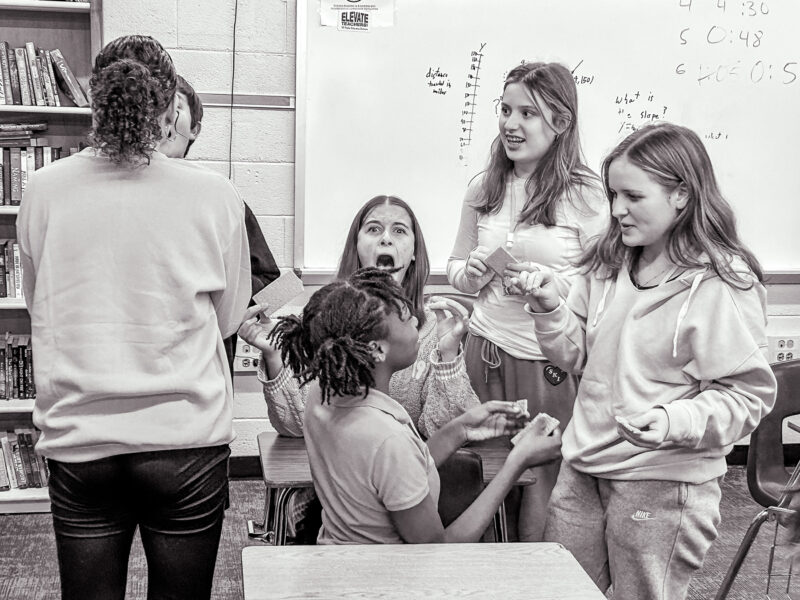
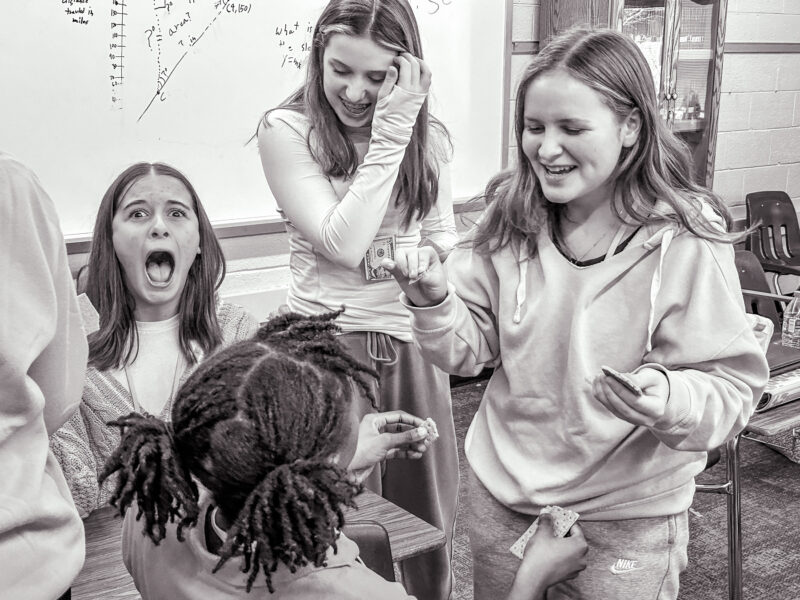
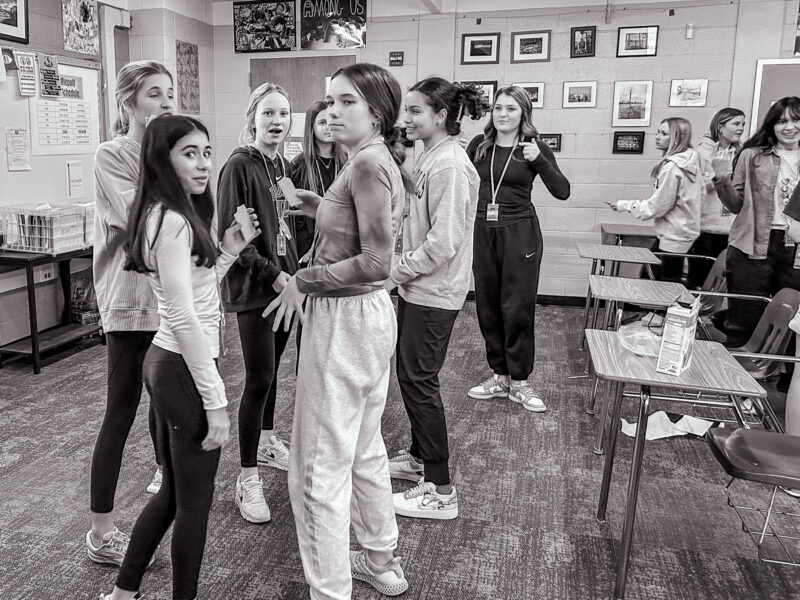

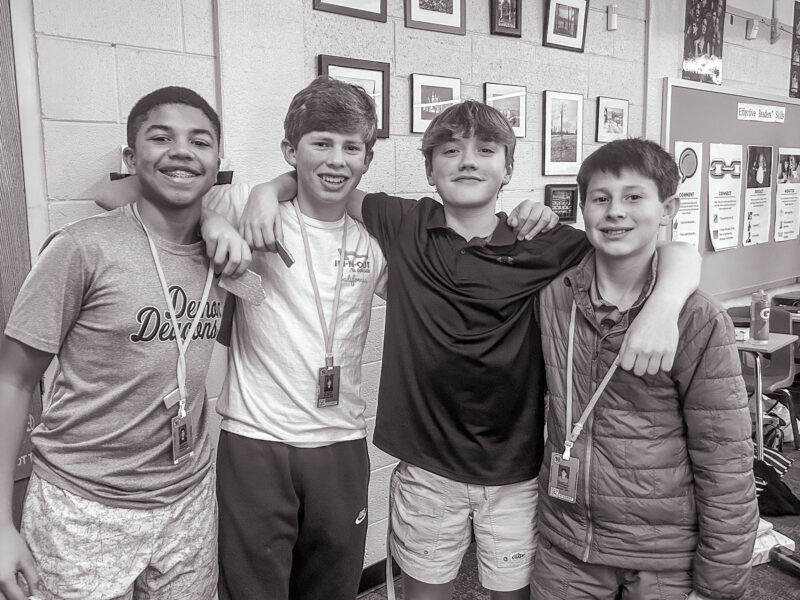
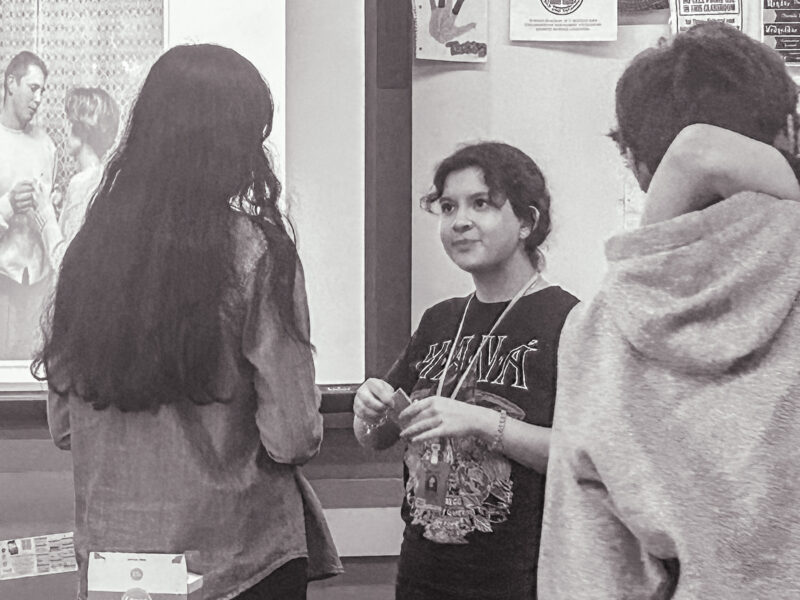

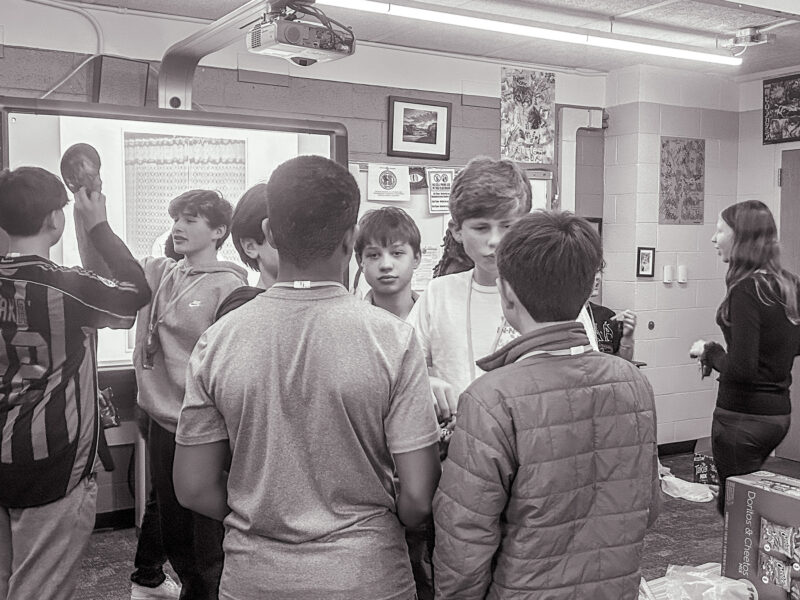
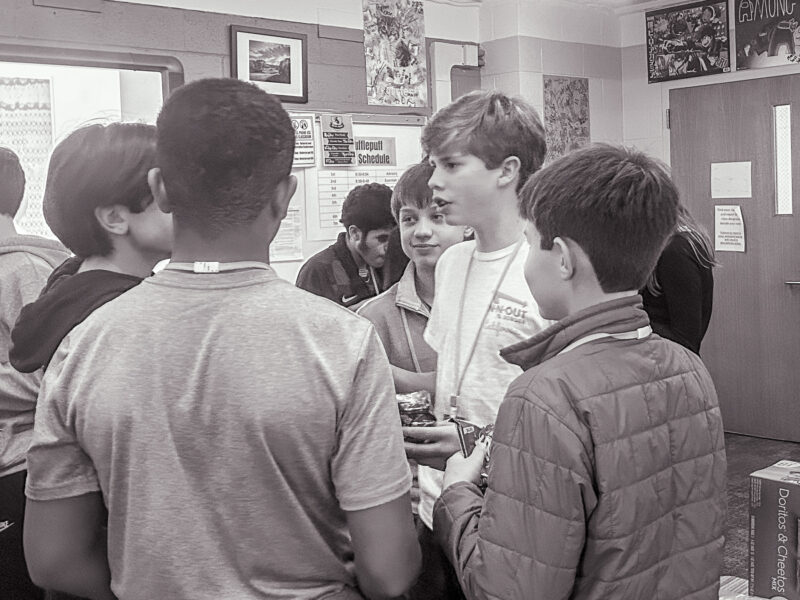
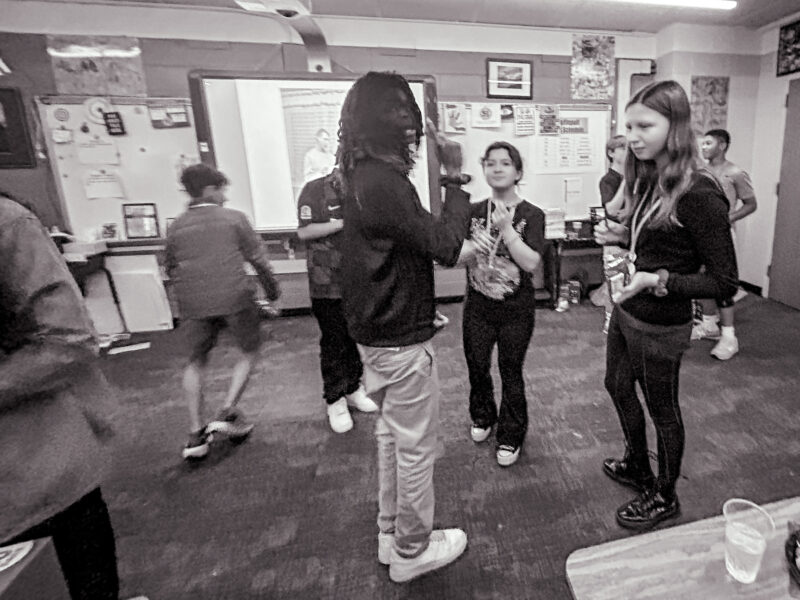
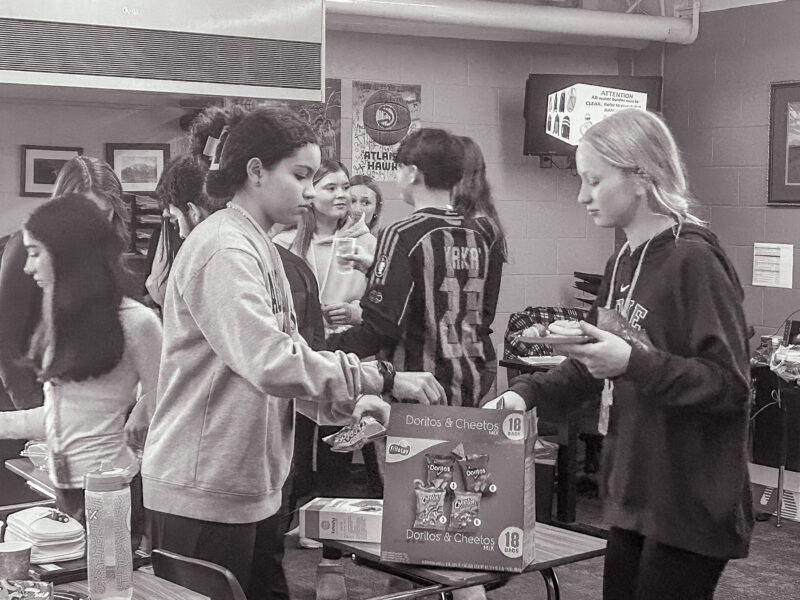
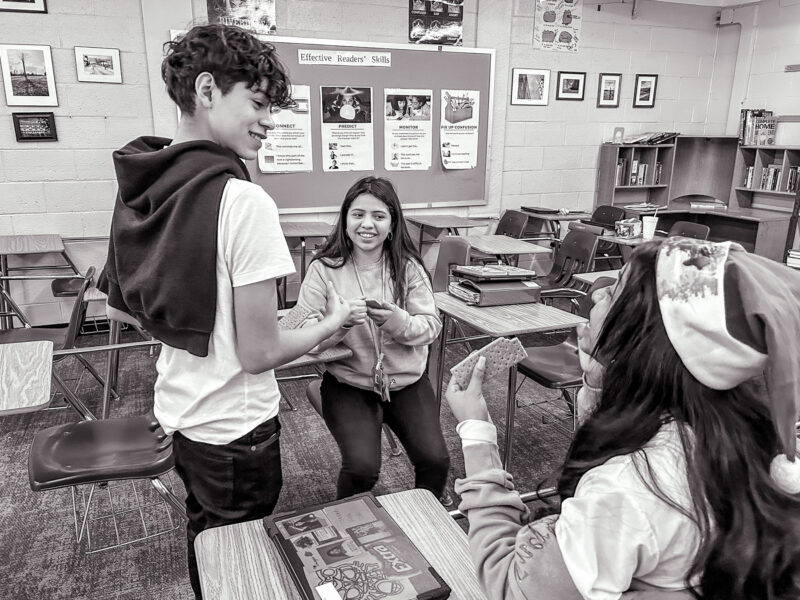
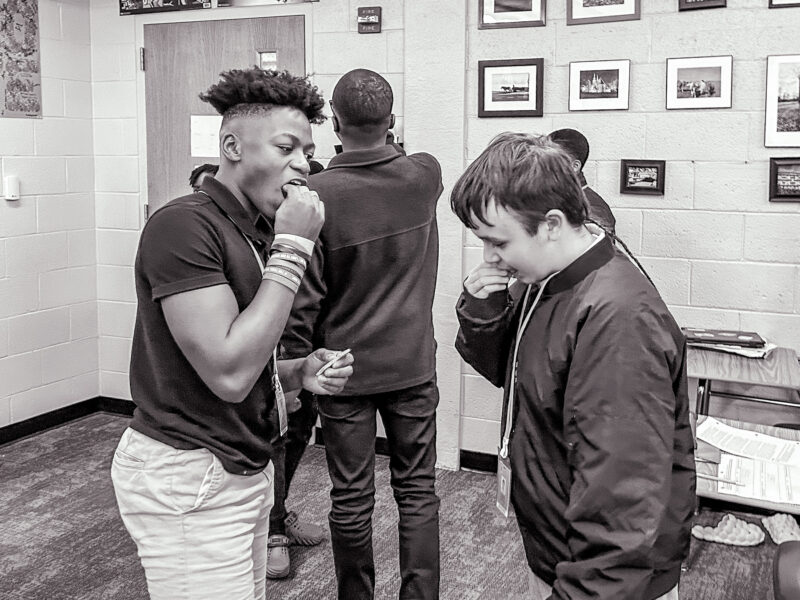
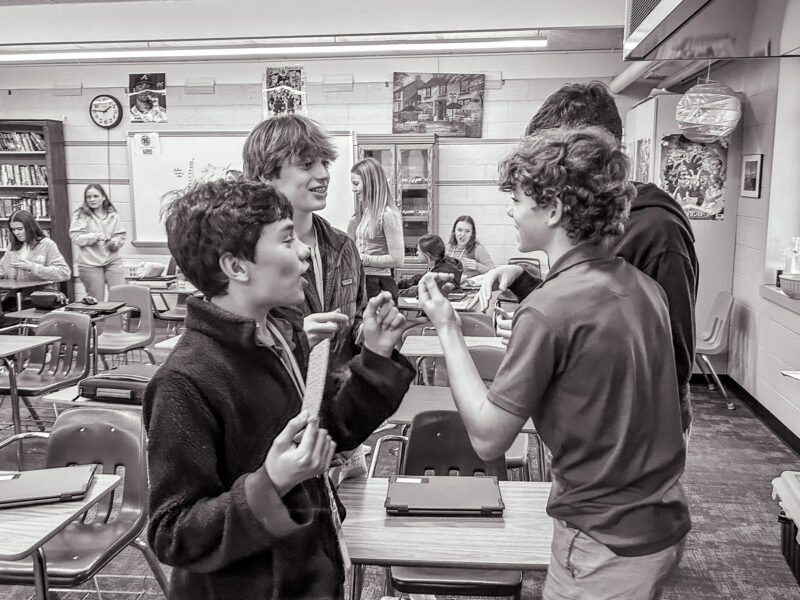
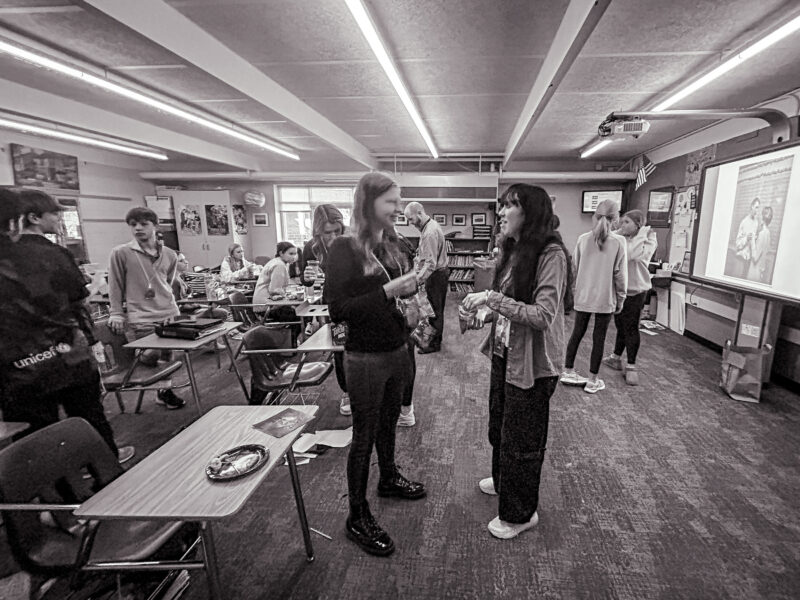
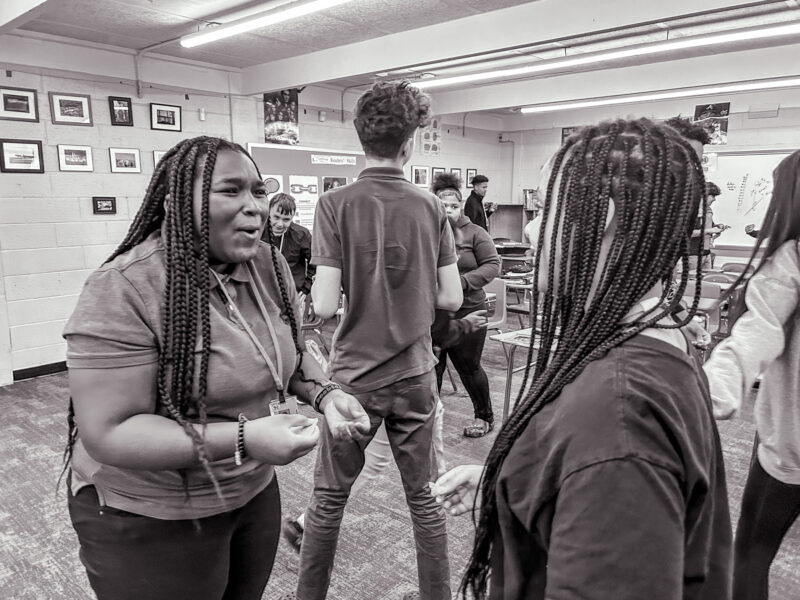
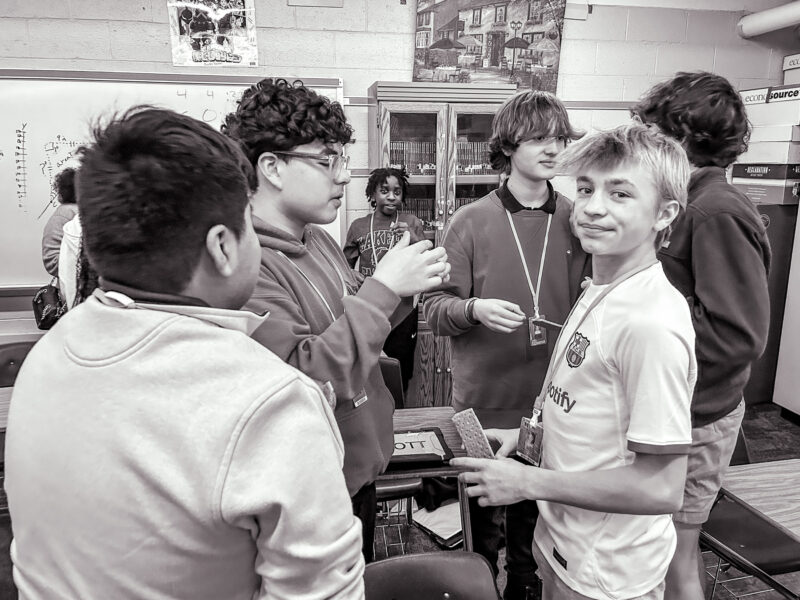




























We always have some kind of decorating competition in school around Christmas — door decorating, hall decorating, tree decorating. And there’s always a group of kids who are so very eager to do the work.

It’s also this time of year that we often start Romeo and Juliet. I’ve about completed the whole first act in a single week. We could have pulled it off if it weren’t for today’s quiz…
Today was our annual trip to the district’s vocational school to give our soon-to-be-high-schoolers an overview of what’s available to them there: everything from cosmetology to firefighting, from diesel engine repair to culinary arts, from mechatronics to nail tech. It’s quite an impressive variety.
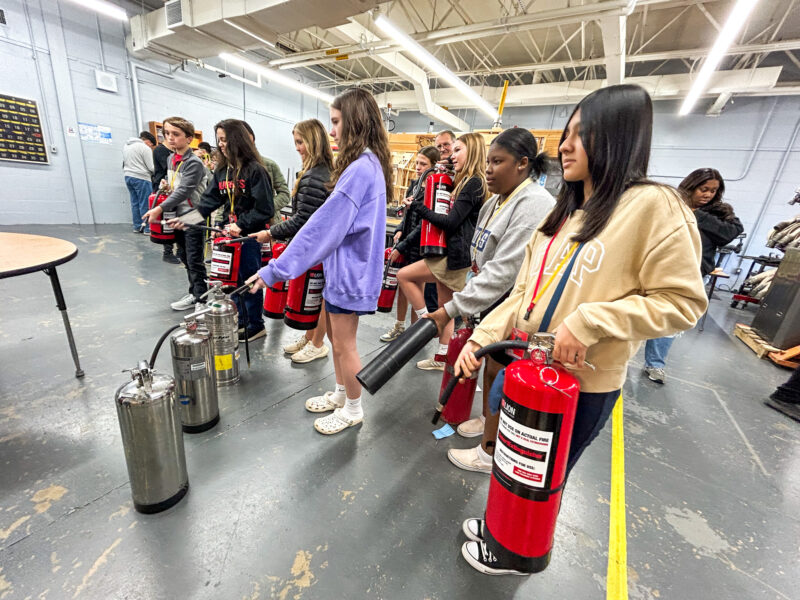
Once I got back home, I saw that the inevitable has begun: our poor widowed neighbor has moved out of her house and family and friends have already started on the house — they took down the back deck that looked to be made of nothing but rotten boards.
“Wonder what kind of neighbors we’ll get,” will become a common topic of discussion, I’m sure — not that we have any say in the matter.

For dinner, Babcia made placki ziemniaczane with mushroom sauce — utter heaven.

And after dinner, a walk with the dog while the rest of the family went to church, a walk that included a street I haven’t been on in ages. I’d forgotten about the holiday scene they create.

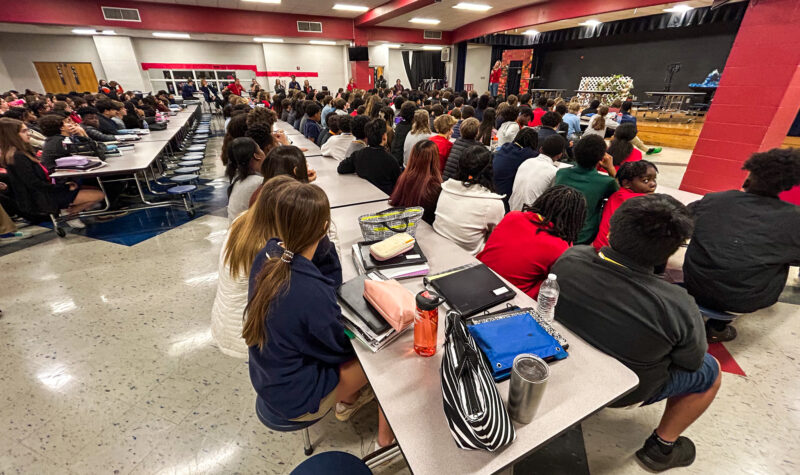
An imaginary email:
Thank you for attending the Q2 Student Progress Monitoring meeting with Bob Smith from the district office. As we prepare to engage in the Q3 Student Progress Monitoring process, please discuss and have one person from your collaborative team respond to this email no later than 4pm on Thursday. Please Cc: Bob Smith when you respond.
- Question 1: What is the title of your current unit of study and what date do you anticipate finishing this unit?
- Question 2: What is the title of your next unit of study and what date do you anticipate beginning this unit?
Let me know if you have any questions/concerns.
An imaginary response:
Thank you for your email thanking me for my attendance at the mandatory meeting. I appreciate the chance to sit with my colleagues and hear from someone at the district office how to do my job. Since I’m completely unfamiliar with monitoring student progress having taught only 24 years now, I appreciated the refresher of the basic ideas with which only the rawest of new teachers are unfamiliar. However, given the amount of time it took to fill out the forms your method required, I think I will have to politely decline further participation. I trust the district office will understand that my experience should suffice.
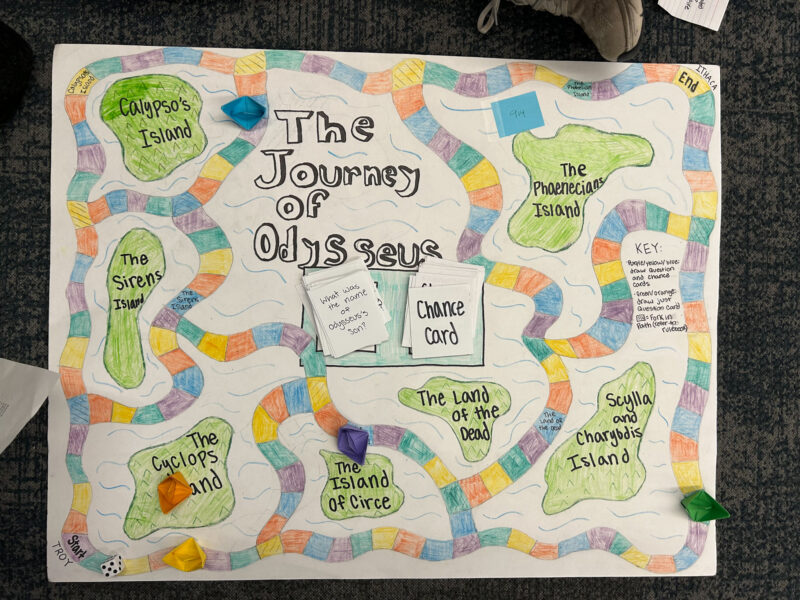
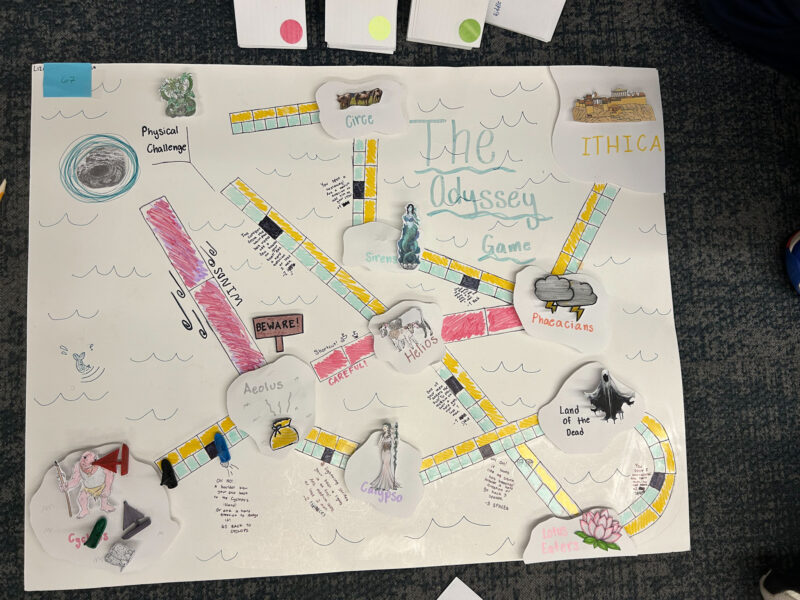
Educational technology has come a long way in the last ten years. We’ve gone from simple programs like Google Docs to interactive learning games like Kahoot and Gimkit.
I use these, but I’m of mixed feelings on the topic.
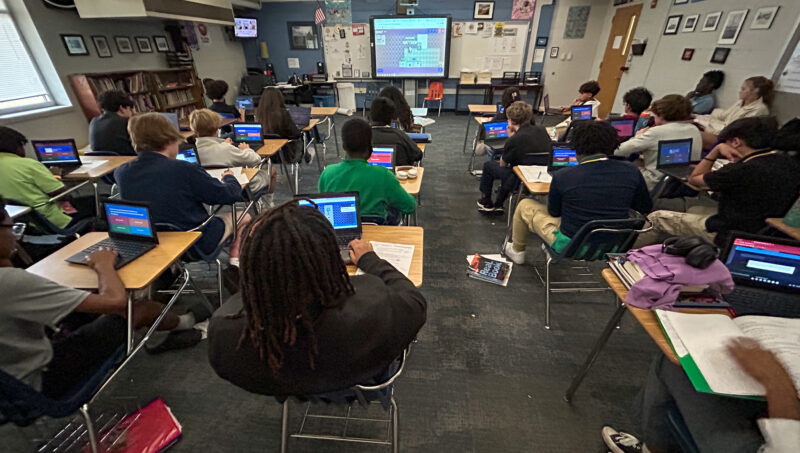
On the one hand, they do get students engaged. When you’re using learning to earn snowballs to pelt your classmates (see below), you’re going to forget to some degree that you’re learning/practicing.
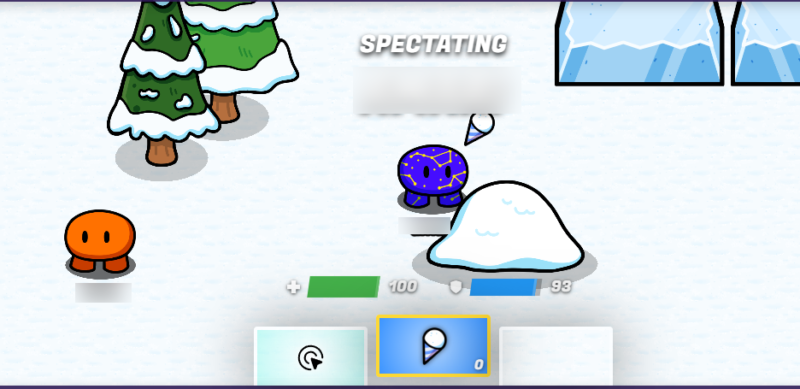
On the other hand, gamifying learning seems to run the opposite risk: kids are more interested in the game and less interested in the learning, and they’re willing to take risks (i.e., click somewhat randomly) to speed the process. And also, does everything have to be a game?
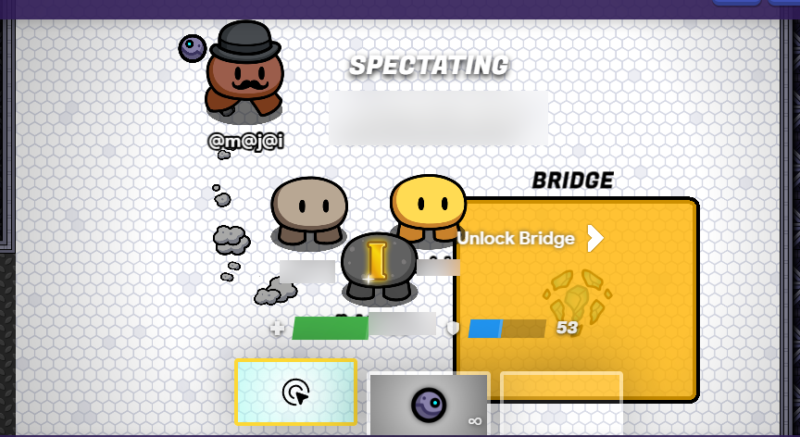
Still, it got some kids who are usually less than enthusiastic about school to engage to some degree for a few minutes. That’s a win.
Two of our newest students have been developing a friendship even though one of them doesn’t yet speak much English at all.
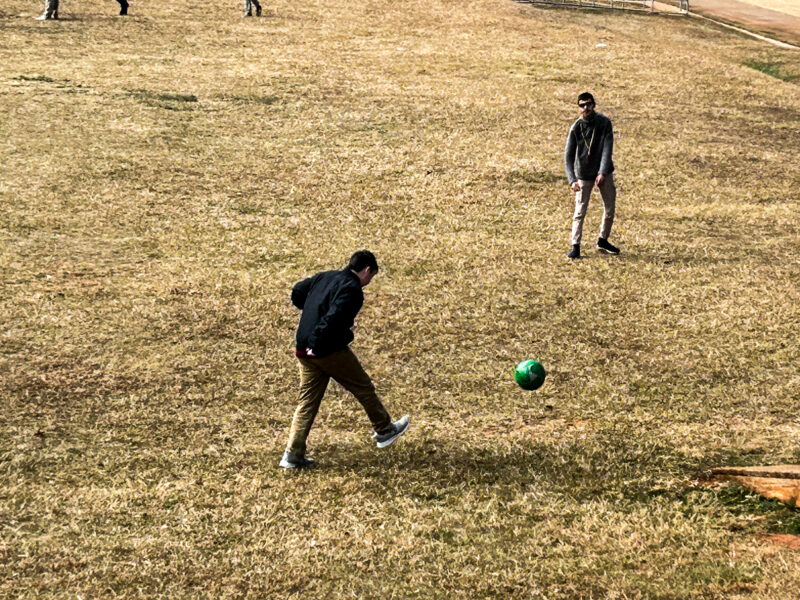
As you look at the graphic organizers I created, notice that I never really write a complete sentence. I just write enough to help me remember what my original thoughts were. Writing the whole thing in the GO is not necessary, and it’s not always a good idea, either: You expend to much energy writing it out and might start cutting corners when you’re putting it into Mastery Connect.
My first thoughts were about the princess. Her personality was the clearest as I read, and I jotted down some quotes almost immediately. They were all listed under the CD together, though I knew I would eventually separate them. Once I’d read through it a couple of times, I looked at the quotes and figured out a way to group them. I then crossed out the ones I was going to use for CD2 so that they didn’t clutter my thinking once I started focusing on the commentary.
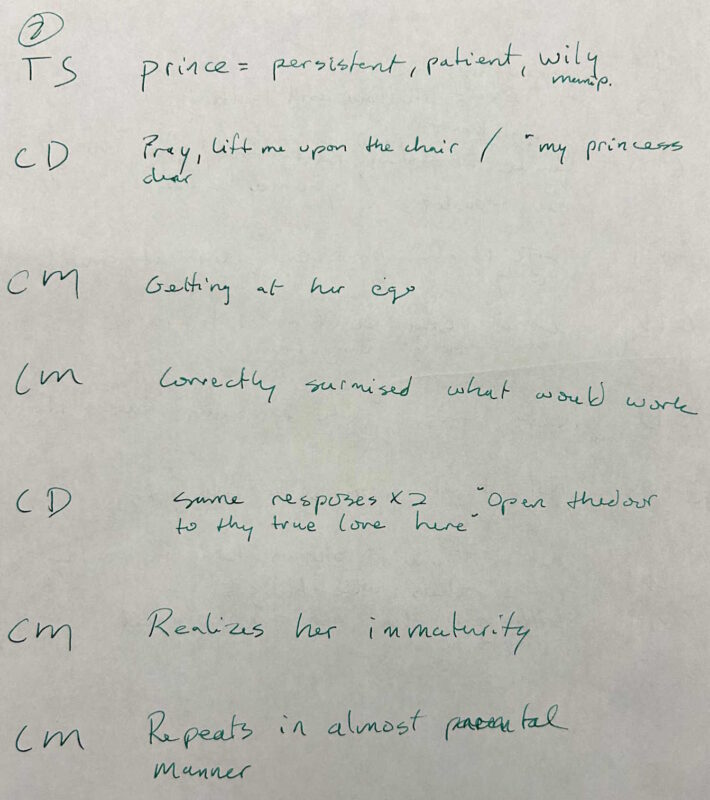
The prince was much more challenging than the princess. I had to reread the story a couple of times to find something I liked. I was tempted to go all positive with him, and I did lean heavily toward a more positive interpretation, but there is an underlying sense that he is manipulative. I hinted that that a little, but I couldn’t really find clear quotes that I could use. I’m sure with more time and additional reading, I would find the, but given the time I had, I settled.
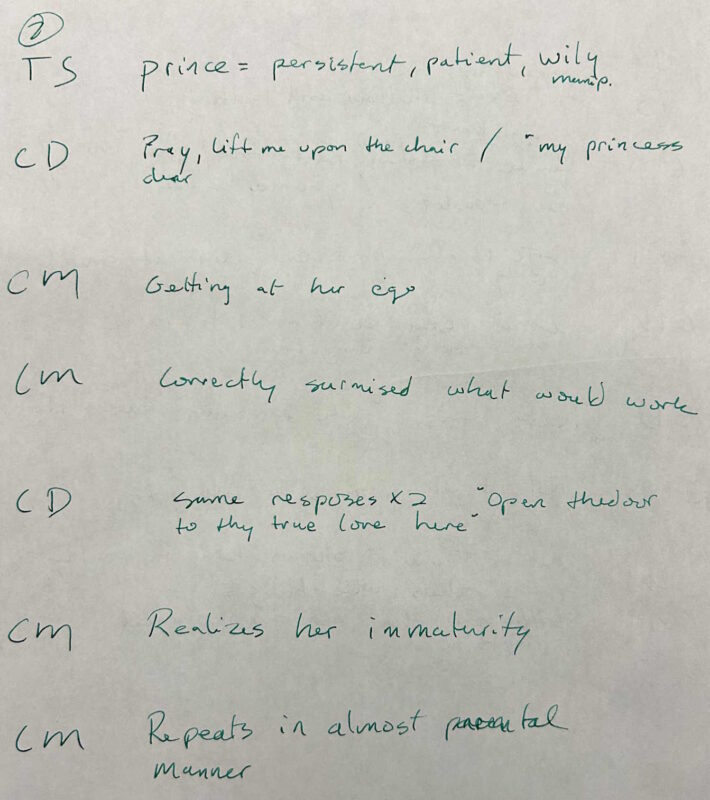
This version is 464 words long. It uses some more complicated sentence structures, and it often uses three commentary sentences per chunk. Additionally, it slightly bends some of the rules we’ve implemented for Schaffer paragraphs, including at least one quote in commentary and mixing a bit of claim with evidence in some of the concrete details.
Authors have at their disposal only one tool: words. The word choices they make when writing, then, are of supreme significance, and a good author selects words for the specific impact they will have on the reader. The Brothers Grimm used word choice in “The Frog Prince” to demonstrate contrast the shallow, selfish immaturity of the princess with the prince’s wily and patient persistence.
The authors clearly show the princess’s shallow selfishness through their commentary on the princess’s actions and thoughts. For example, they make it clear that she is most interested in her “favorite plaything” and cannot “be troubled” with anything other than joy. Life is about entertainment for the princess, and her own fun is all she seeks. She can’t even be troubled with the fact that she’s interacting with a speaking frog. Such thoughts are too difficult for her, so she simply pushes them out of her mind. In addition, as she leaves behind the “nasty frog,” the authors show she has “quite forgotten” about the frog and “never thought” about it again. This is remarkable insofar as she was not impressed by the fact that an animal was carrying on a conversation with her. It wasn’t fun for her, so she didn’t remember it. The author’s use of “quite” shows how flippantly she takes the whole thing. The princess’s selfish shallowness is clear from the authors’ descriptions and commentary on her behavior.
The prince, on the other hand, is shown to be wily and persistent, exhibiting the patience of someone who is a master manipulator. For example, the authors have the frog phrase his interactions in very flattering and subservient ways, asking the princess, “Pray, lift me upon the chair” and constantly referring to her as “my princess dear.” The frog, seeing how obsessed the princess is with her “favorite plaything,” realizes the best way to get at the princess is through her ego. He understands that she thinks of herself first, and he frames all his interactions with her in that light. Additionally, the authors show how patient the frog is by having him repeat the exact same thing every time he interacts with the princess: “Open the door to they true love dear.” This repetition suggests an almost parental approach the frog is taking. It’s as if he is interacting with an incorrigible toddler, and like any patient parent, he simply and persistently repeats himself instead of engaging in an argument. Thus, the authors use the frog’s dialogue to show his wily patience.
Just as the prince is wily in his word choice with the princess, the Brothers Grimm cleverly used word selection to contrast the characters in “The Frog Prince.” They effectively show the prince to be wily and manipulative and the princess to be selfishly shallow.
This version is 209 words long and makes use of very simple sentence structures. Everything is short and to the point. There is only a single sentence for the introduction and a single sentence for the conclusion.
The Brothers Grimm use word choice in “The Frog Prince” to show the princess is selfish and shallow and the prince is clever and persistent.
The princess is very selfish and shallow. For example, all she is interested in is her “favorite plaything.” This shows that for her, entertainment is the most important thing in life. She is more concerned about being happy than anything else. In addition, she quickly forgets about the “nasty frog.” This suggests that she’s not even curious about the fact that an animal is talking to her. Most people would find this fascinating, but she only finds it annoying. The authors show the princess to be selfishly shallow.
The prince is shown to be clever and persistent. For example, he keeps calling her “my princess dear.” This shows that he understands how selfish the princess is. He is using her selfishness to manipulate her. In addition, he continually says “Open the door to thy true love.” This suggests he recognizes her childishness. He’s repeating this like a patient parent would repeat something to a child. Cleverness and persistence are clearly the most obvious traits for the prince.
Word choice in “The Frog Prince” is critical to show the selfish princess and the clever prince.
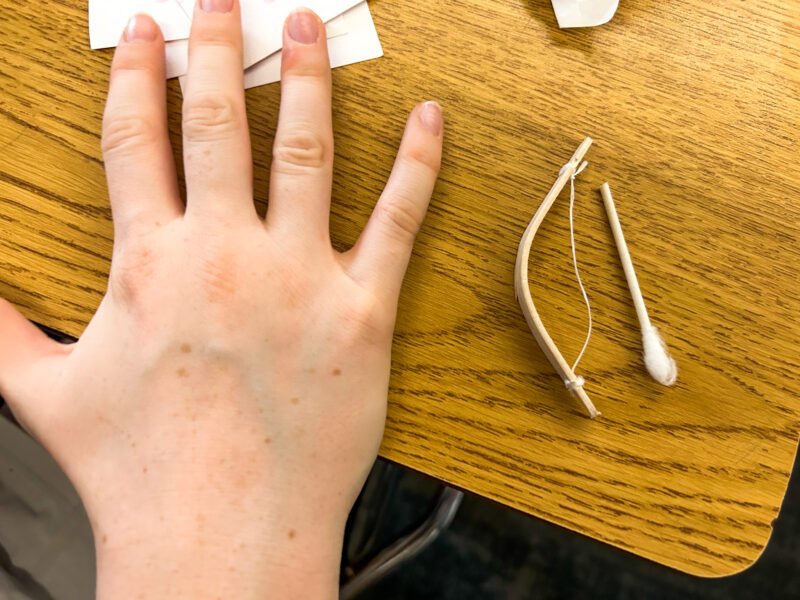
In many ways, school is about measuring things. We measure how many questions you get right. We measure how your grades have risen or dropped. We measure how much faster you are at running 60 yards than you were last year. We measure, measure, measure; we count, count, count. We try to turn everything into a number that we can then compile with other numbers and run some analysis on (standard deviation anyone?) and pass those numbers on to people higher up than us, people with six-figure salaries who haven’t been in a classroom for ages yet who take those numbers and make some prescriptive pronunciations from them and tell us how we can make our numbers better. Numbers, numbers, numbers, even if the subject we teach is a million miles from numbers.
That is the reality of education in 2023. Where did this come from? How did we get so consumed with the idea of data? (Never mind the fact that much of that data is of spurious quality—numbers are numbers.) Why weren’t we so data-obsessed when I was in school? When I was student teaching? When I first began teaching in the States? Simple: we didn’t have a way to produce all those numbers on a regular basis because it was all pencil and paper. Now that we have computers and websites that can collate and count and assess and analyze numbers, numbers, numbers, we seem to think those numbers are the most important thing about education. We have meetings almost every week in which we’re supposed to discuss our numbers and how to improve our numbers and how to prepare our students better for the next measure that will produce more numbers that we can then dump into the computer and crunch and analyze some more. Numbers, numbers, numbers. It’s all we do anymore.
But I didn’t get into education to crunch numbers. I didn’t become a teacher to make spreadsheets and analyze them. I didn’t become a teacher to spend all my time thinking about numbers connected to arbitrary measures that are often inaccurate and misleading.
I didn’t become a teacher to do data.
I had a thought during chess club today: many of the kids who come for our meetings are, for lack of a better word, nerds. That’s how others see so many of them. Social misfits, uncoordinated socially and physically. I think it’s fairly safe to say that a lot of the kids who come to play chess don’t always feel like they fit in. During PE class, one or two might suffer mini- (or not-so-mini-) anxiety attacks at the thought of participating in a physical activity. During social time, one or two might feel completely lost when around the “cool” kids. When tensions flair in a hallway, one or two might cast a quick glance at the kid who bullies others, wondering if they’ll be the new victim. One or two. Or more.
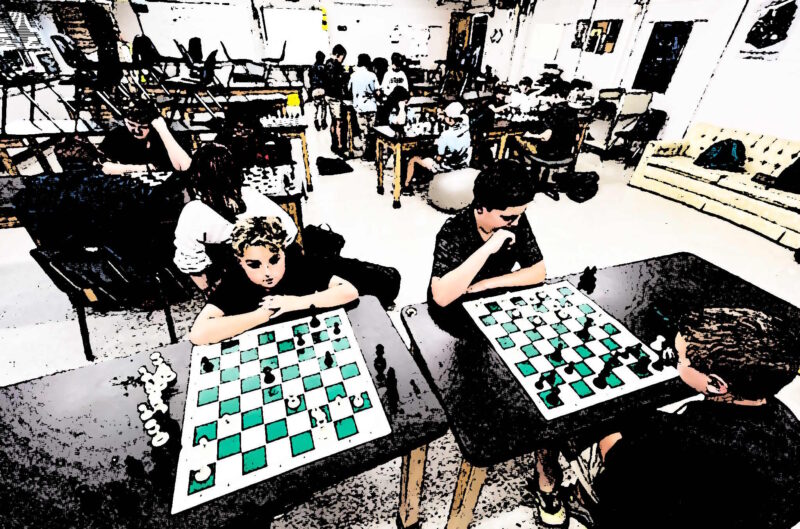
And it occurred to me as we finished up, and I heard one boy as he was leaving saying, “I love chess club,” that this might be one of the few times some of these kids feel absolutely in the right place with the right people. It might be the one time they feel like they fit.
In the evening, the Boy and I sat in the basement reading. He’s put off an assignment for far too long, and tonight we started making headway to the Friday deadline.
The first hurdle: where did you stop?
“I don’t know. I can’t remember.”

“Don’t you have a bookmark?” How can anyone keep track of reading without a bookmark?
“No.”
“Which chapter was the last you remember reading?”
“I don’t know. I can’t read Roman numerals.”
I take a quick glance: chapters are numbered with a bunch of confusing letters, so I teach him how to read Roman numerals.
Finally, we get everything squared, and he begins reading. His goal: ten chapters. His accomplishment: ten chapters.
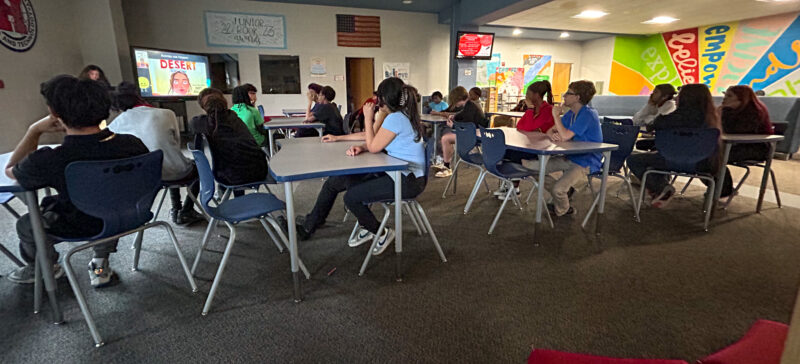


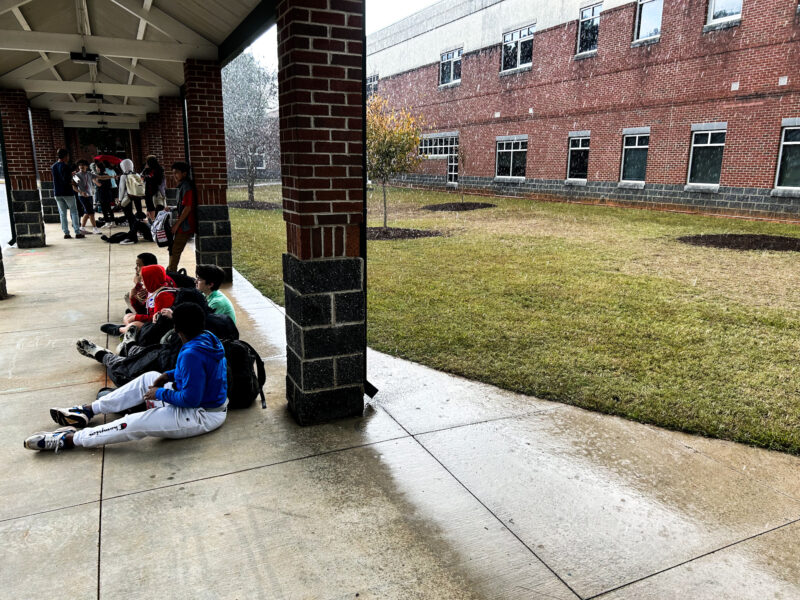



How in the hell is it only the end of the first quarter? I feel like I’ve been pulled through a knot hole backward, as Papa would say, and we’ve got to do this three more times?!
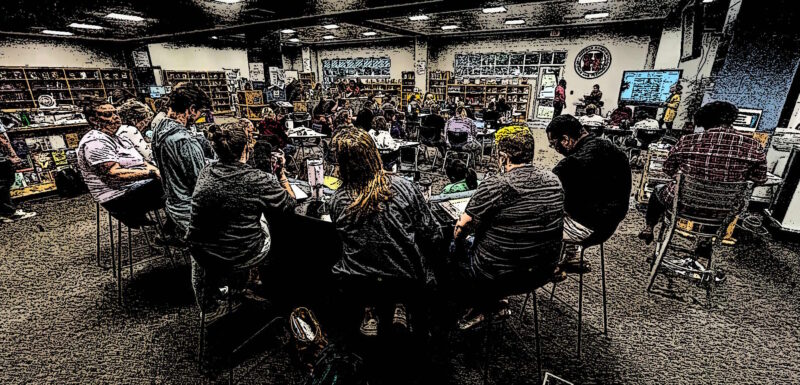
And we had a faculty meeting today?
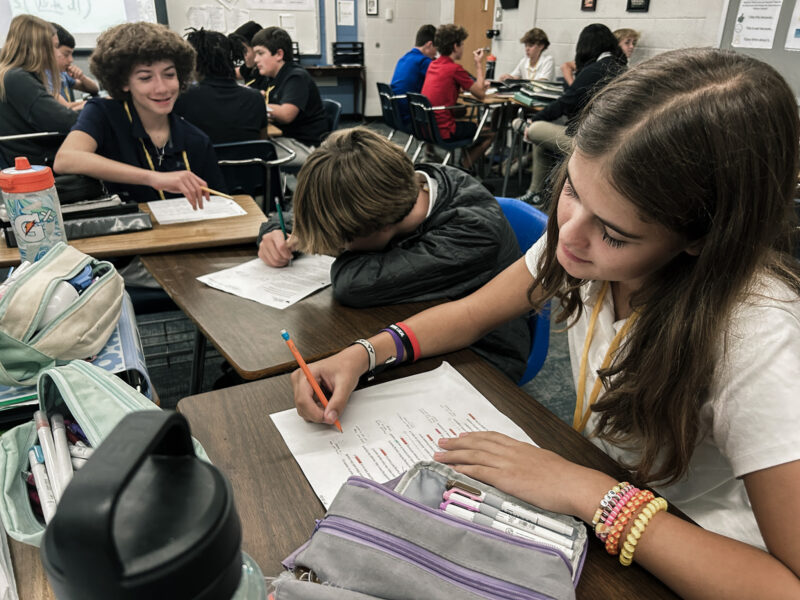
“Let me get an action shot!” I said. They stopped their conversation (itself, an action shot) and posed…
Tonight we had open house at our school, an opportunity for parents to come and go through their child’s schedule, meet the teachers, and see what their child’s daily reality is like.
The only parents who ever come are the parents of the students who work hard, give their best all the time, and show excellent citizenship and not the parents we really need to talk to more often.
It’s easy to make generalizations about that, but as I grow older and more experienced, I try to resist that temptation. There could be any number of reasons why the other parents didn’t show up, never show up.
Last year, it was a much more frequent occurrence: the day winds down, and I realize that by some miraculous aligning of the stars and kids’ hormones, impulses, and desires that every single class has been productive. I walk out of the building thinking I’d done something, thinking that perhaps everyone had learned something. At the very least, everyone engaged in some reading or writing.
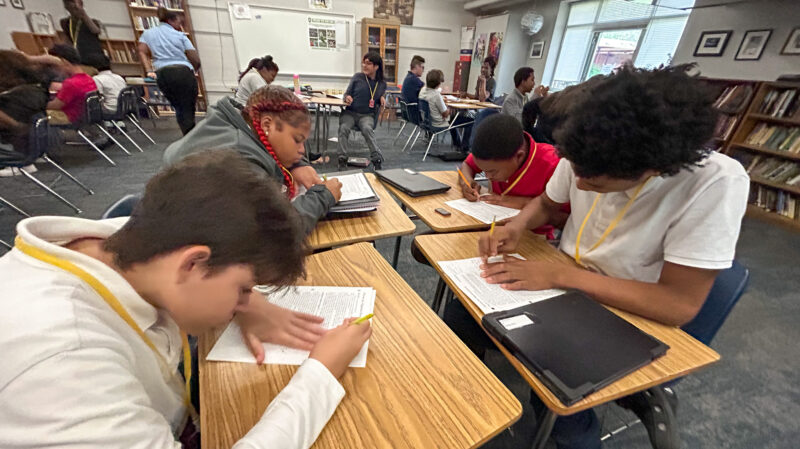
Today was only the second day this year that I’ve felt that way…
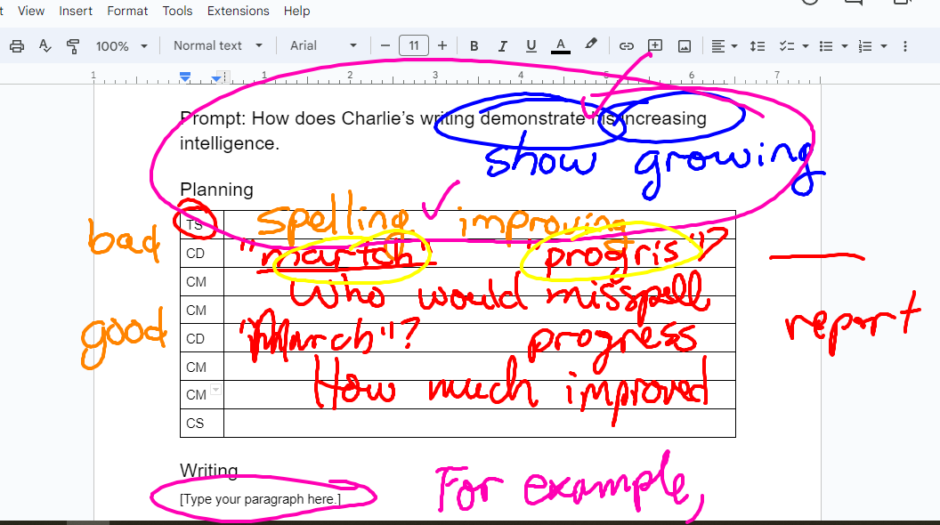
Cheating, I know…
